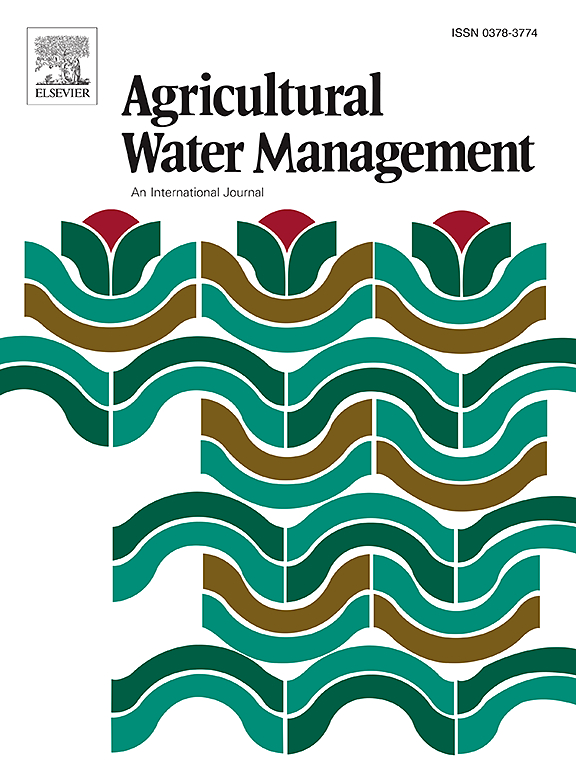Evolution of chemical characteristics and irrigation suitability of groundwater in arid and semi-arid regions
IF 5.9
1区 农林科学
Q1 AGRONOMY
引用次数: 0
Abstract
Groundwater is a vital resource in arid and semi-arid regions, playing a key role in sustaining ecosystems, supporting agricultural irrigation, and ensuring human survival. This study evaluates the irrigation suitability of groundwater in the Jiefang Sluice Irrigation District, part of the Hetao Irrigation District—the largest single-system irrigation district in Asia. A total of 126 groundwater samples were collected and analyzed to assess chemical environmental changes, classify water quality, and identify the environmental factors influencing the formation of groundwater components during typical irrigation periods. The findings reveal that groundwater in the region primarily falls into two chemical types: Cl-Na and Cl-SO4-Ca-Mg. Analyses of the Water Quality Index (WQI) and irrigation suitability indicate that groundwater quality is poor, with 84.12 % of samples deemed unsuitable for irrigation. This unsuitability is primarily attributed to elevated concentrations of Na+, K+, and Cl⁻. Principal Component Analysis (PCA) and the Gibbs geochemical model suggest that evaporation-induced crystallization and rock salt dissolution are the principal factors contributing to groundwater salinization, whereas processes like silicate hydrolysis and cation exchange are of secondary importance. To ensure the sustainable use of groundwater for irrigation, stricter control measures must be implemented. Key recommendations include optimizing irrigation techniques and promoting ecological restoration to enhance groundwater quality. This study underscores the critical importance of sustainable water resource management in addressing salinity issues and safeguarding groundwater resources, which are indispensable for agricultural sustainability.
求助全文
约1分钟内获得全文
求助全文
来源期刊

Agricultural Water Management
农林科学-农艺学
CiteScore
12.10
自引率
14.90%
发文量
648
审稿时长
4.9 months
期刊介绍:
Agricultural Water Management publishes papers of international significance relating to the science, economics, and policy of agricultural water management. In all cases, manuscripts must address implications and provide insight regarding agricultural water management.
 求助内容:
求助内容: 应助结果提醒方式:
应助结果提醒方式:


